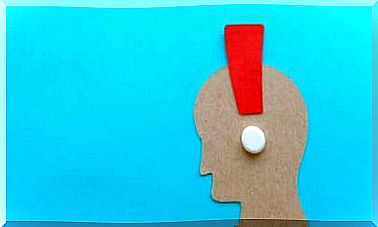Mental Fatigue And Exhaustion – Possible Causes

“I’m exhausted like I’ve run a marathon and carried the whole weight of the world on my shoulders.” Does this sound familiar to you? This strikes a chord with many. Your seemingly inexplicable mental fatigue is often overwhelming and not necessarily due to physical exertion.
Emotional exhaustion often lurks in the background. Something that is undoubtedly as striking as it is obvious is the intimate relationship between your body and mind. Sometimes nothing is better than coming home after a workout. Going through the door of your home and knowing that you are done with your daily tasks and can feel satisfied with what you have accomplished.
The mind is usually comfortable with this kind of fatigue, as it is not painful, heavy, or exhausting. The body quickly recovers and there is a sense of inner peace.
However, there are times when just going shopping or dining out with friends will use up all your energy. In some cases, these situations may be due to an underlying problem. In any case, you should pay attention to it.
Extreme fatigue for no reason

Usually you know why you feel exhausted, at least in most cases. You may have overextended yourself or completed a special project that made you work harder.
Perhaps you’ve been on a journey that required frequent transfers. These are all obvious reasons for physical and mental fatigue. However, for most of us, it’s hard to figure out the reasons for the kind of exhaustion that robs all of our energy from us.
There are times when some sort of general discomfort overwhelms you and the reasons are not always clear. You may be suffering from mental fatigue.
What is Mental Fatigue?
Mental fatigue isn’t always the result of things gone wrong. It is not always about problems, disappointments or daily setbacks.
If you’re tired and don’t know why, it could be because of the many things you do. Also, it could be because of the problems you face without taking any time to think about it or just to take a break.
For example, how often do you get up in the morning to have breakfast, take the kids to school, go to work, and return home on autopilot?
You do these tasks mainly passively, one after the other without thinking about it. You basically leave no room for reflection or relaxation and it ultimately takes a toll on your health.
What leads to mental fatigue?

Mental fatigue does not manifest overnight. Instead, it is the cumulative result of several factors, such as:
- Overcommitment. How often do you commit to doing more things than you really can?
- “Because I have to.” If you think about it, devotion to duty has a lot of power over your mind. Feeling obligated to do something you don’t really want to do is a major reason for mental exhaustion.
- Perfectionism. This is complementary to a sense of duty. You are convinced that you have to do everything perfectly, quickly and efficiently. This is something that will undoubtedly lead not only to mental fatigue, but also to frustration.
- Lack of rest. This is the most decisive factor of all. Not being able to relax or sleep leads to exhaustion, even before you get out of bed in the morning.
Strategies to Cope With Exhaustion
Wayne Dyer used to say that it is best to do different things when you are tired and to avoid complaining about your fatigue to other people. This is how you transfer your discouragement to them. Keep in mind that everyone deals with their own exhaustion in one way or another.
If you say you are somehow exhausted but you don’t know why, be clear about one thing. There is a reason behind that exhaustion and you need to identify it before you can make changes. If you don’t do anything about it and you only complain about it, you will only feel worse.
So here are some strategies that you can apply on a daily basis:
- You should take breaks during the day and make sure you have at least two hours to yourself. Spend some of that time and space thinking, relaxing, and doing things you enjoy.
- Know how to prioritize what is important and not what is secondary.
- Dedicate yourself to self-care, because you deserve it. Don’t hesitate to pamper yourself in a healthy way (by ‘healthy’ we mean that you don’t use your credit card up to the limit in the mall, for example). But it is important that you take care of your body and mind.
- Identify your mental self-sabotaging patterns and be careful about the demanding or pessimistic way you talk to yourself. Don’t start your sentences with “I have to,” as that can affect your self-esteem and well-being.
Final Considerations

To conclude, meditation in its purest sense is an appropriate and effective strategy, as it allows you to think, contemplate, invent and philosophize. If you do it for at least 20 minutes a day, you will notice the benefits within a few weeks.
Allow yourself to consider the importance of working on the mental fatigue and emotional exhaustion that affect the quality of your life. Don’t put off until tomorrow what you could do today!









